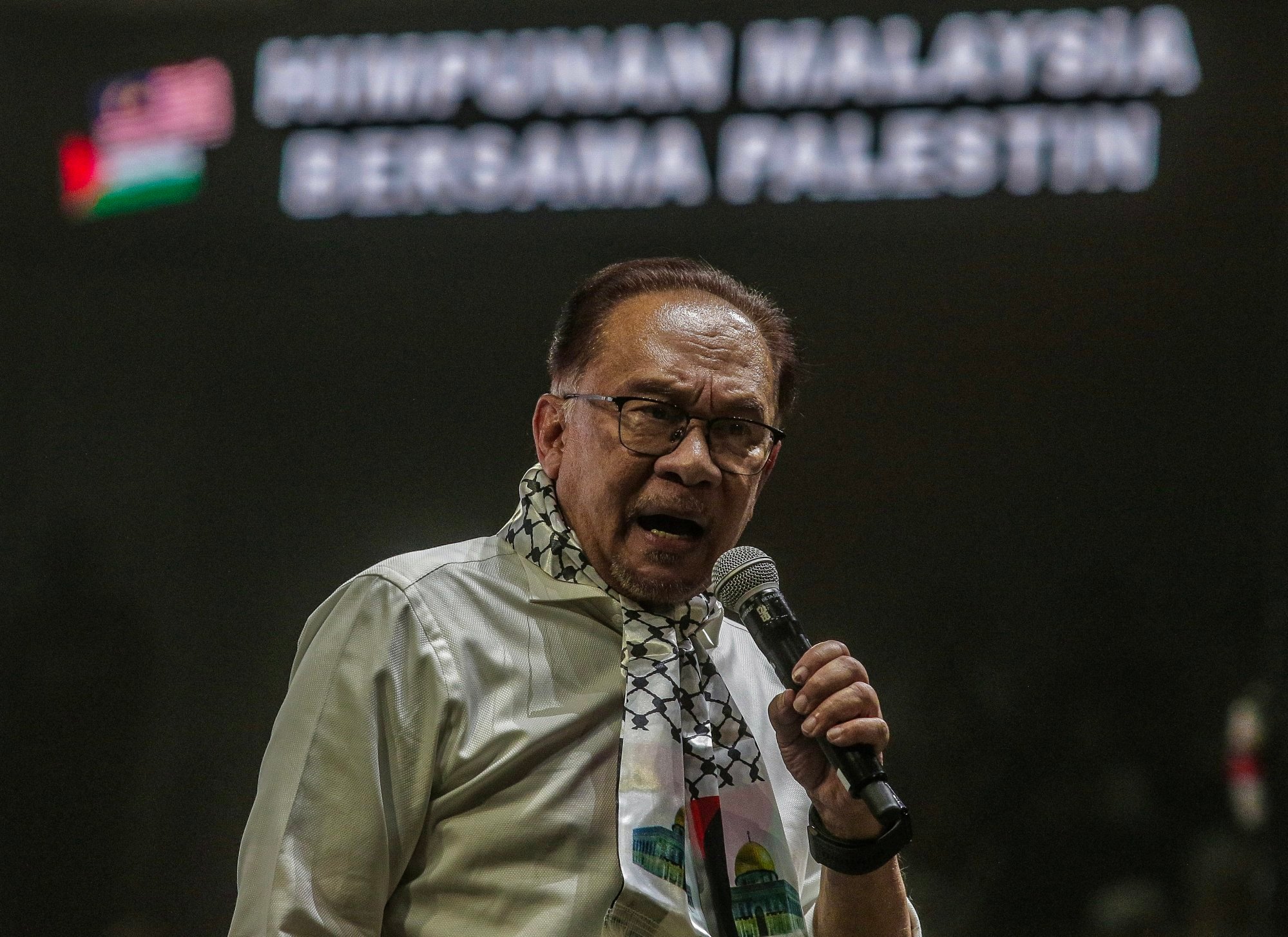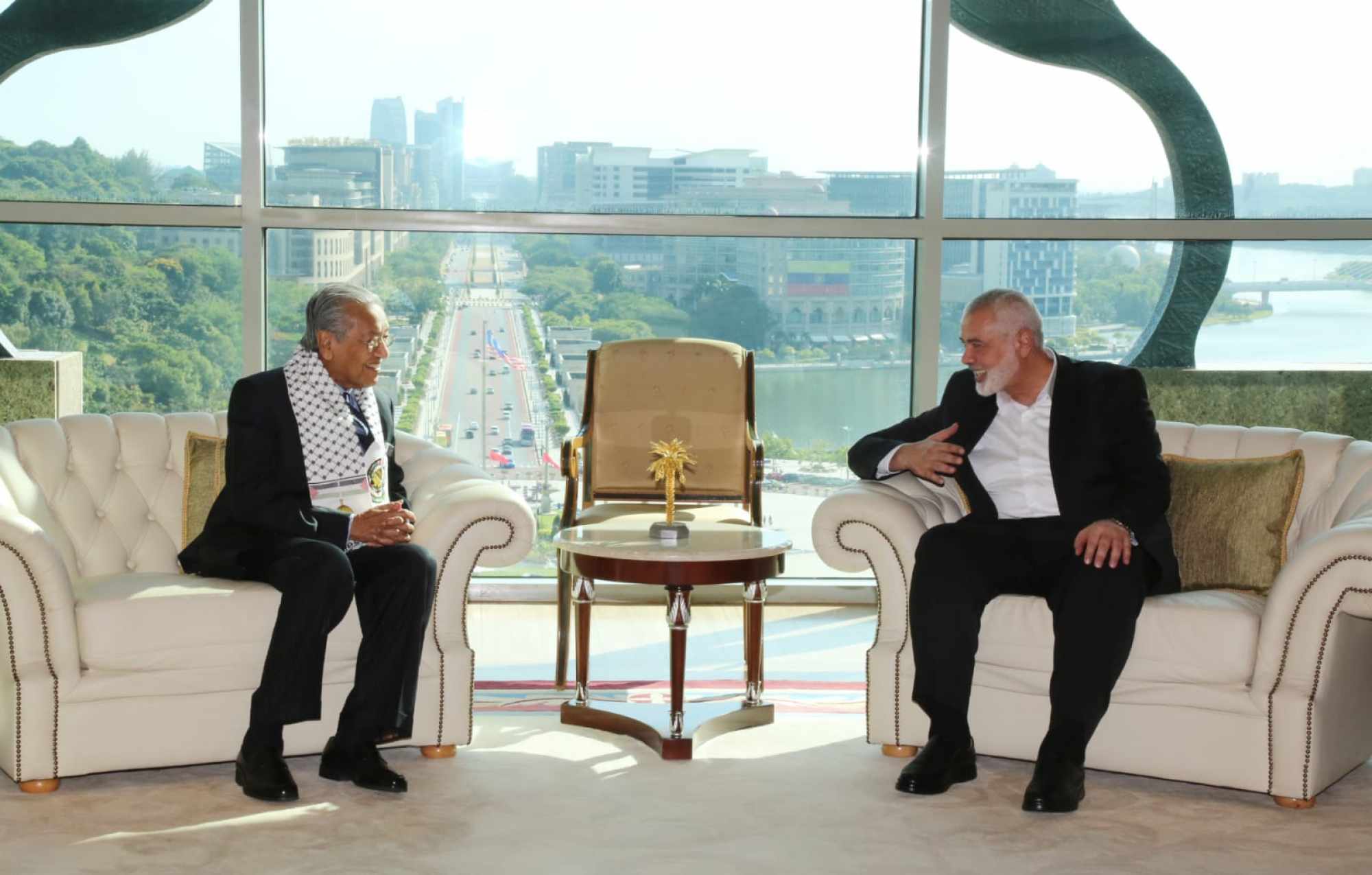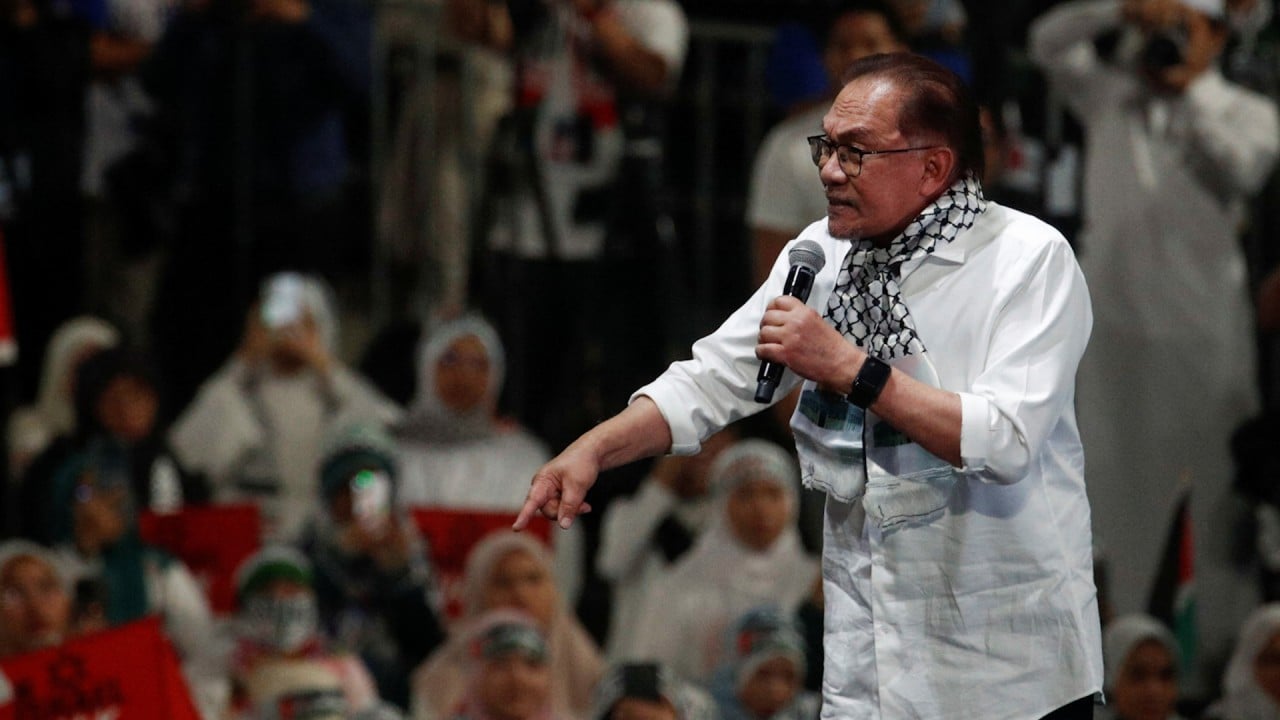
“At the same time, Malaysia urges Israel to stop the massacre of Palestinians, release all Palestinian prisoners and agree to a peace plan.
“Since the conflict erupted eight months ago, hundreds of thousands of Palestinians have been killed and injured, with half of the land of Gaza in permanent destruction,” he added.
Anwar also said he offered condolences to Haniyeh on the death of his three sons and several grandchildren from an Israeli strike in northern Gaza in April.
Malaysia “will continue to commit to playing its role at the international level to stop the attack on Rafah”, he said.
The Israeli Defence Force is reportedly pressing ahead with its ongoing military operations in Rafah, a city in Gaza where over a million Palestinians are estimated to be sheltering, despite pressure from the US to halt the assault.
Speaking to This Week in Asia, foreign policy and security expert Julia Roknifard from the University of Nottingham Malaysia said while it is unwise for Malaysia to provoke the West, the Qatar meeting was consistent with the country’s long-standing policy when it comes to Hamas.
“Rather than deliberately provoking anyone, Malaysia still wants to play that active role in settling the conflict and be seen in the leadership role of sorts as this mediator between the parties as a remote nation without a direct interest in the conflict or its resolution,” Roknifard said.

But lobby groups in the US say the Malaysian government is “playing a dangerous game”, according to Jonathan Schanzer, senior vice-president for research at the Foundation for Defense of Democracies, a Washington-based national security and foreign policy think-tank.
“The [Malaysian] government’s open embrace of Iran and Hamas has not only led to the assassination of several Hamas operatives on Malaysian soil,” Schanzer said. “It may soon lead to sanctions or other punitive measures.”
The US Treasury Department has already imposed sanctions on four Malaysia-based companies it accused of helping Iran’s production of drones in December.
In 2018, Fadi al-Batsh, a Hamas-linked Palestinian lecturer, was gunned down near his home in Kuala Lumpur. Haniyeh claimed it was an assassination carried out by the Israeli intelligence agency Mossad.
Anwar, who took office at the end of 2022, has been unwavering in his support of Hamas, saying he made “no apologies” for Malaysia’s historical links with the Palestinian militant group and maintaining that the current Middle East conflict began long before Hamas’ October 7 attack on Israel, which killed over 1,200 civilians.
“What I reject strongly is this narrative, this obsession, as if the entire problem begins and ends with the 7th of October,” the prime minister said in March during his visit to Germany.
There had been decades of “atrocities, plunder and dispossession of Palestinians”, he said.
The Palestinian death toll in the war has now surpassed 35,000, according to Gaza health officials, whose figures do not differentiate between civilians and fighters.
Despite presenting himself as speaking on behalf of all Malaysians, Anwar’s strong backing of Hamas does not sit well with everyone in the country.
Dennis Ignatius, former Malaysian envoy to Canada, says it is taking Malaysia into uncharted territory, away from its long-standing image as a moderate Muslim-majority country.
“If we are going to find common cause with the likes of Hamas, we had better get used to acerbic comments being thrown at us,” Dennis said on his personal website on April 30.
“We can’t expect to hold on to our so-called moderate Islamic country image if we embrace the likes of Hamas.”
With additional reporting from Reuters


